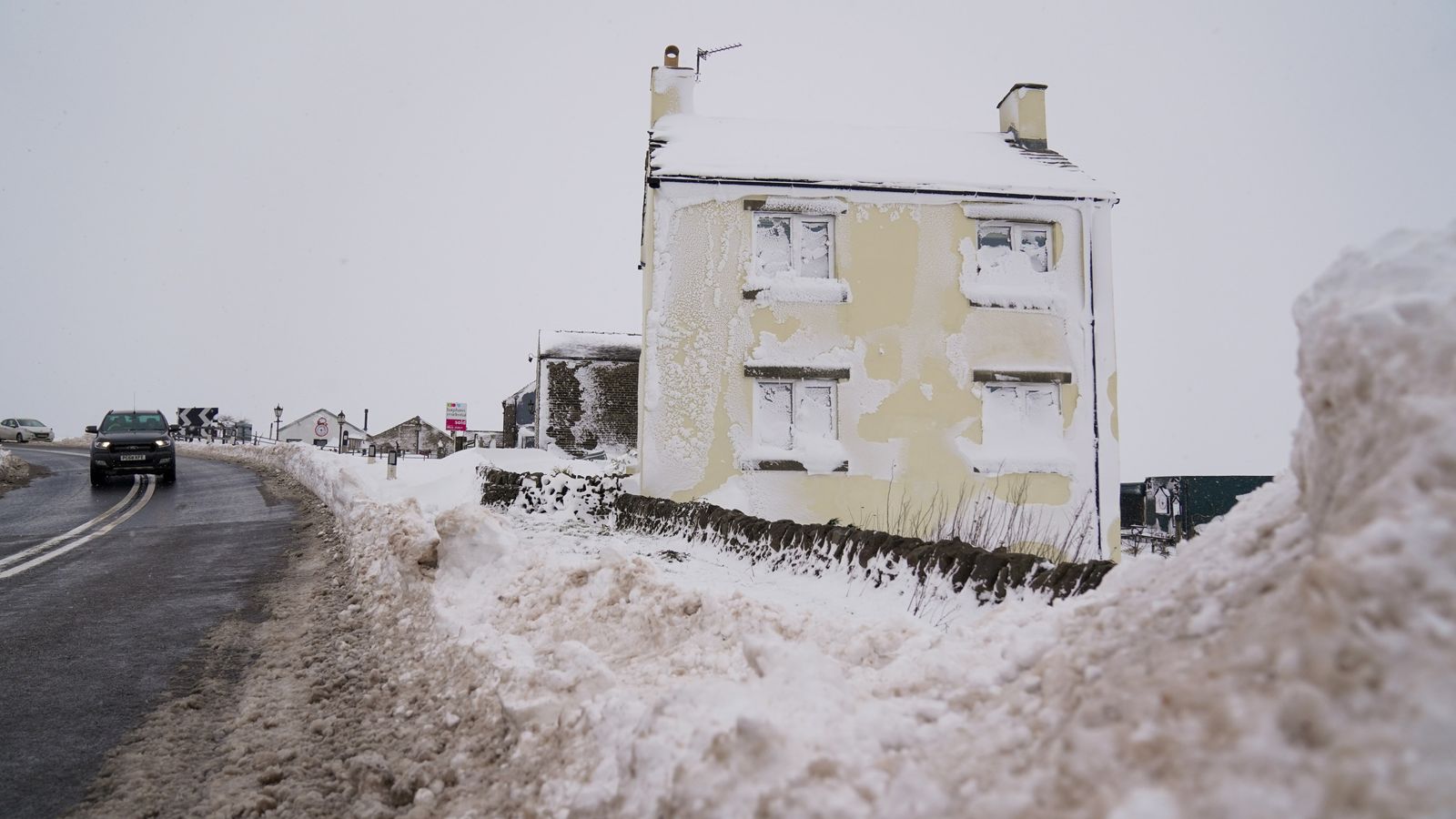The armed forces are being deployed to parts of Scotland which have been cut off following Storm Arwen, a minister has said.
Armed forces minister James Heappey has said 134 soldiers and marines will assist in the Grampian area and will attempt to reach around 4,000 homes.
The soldiers, working in teams of 10, will be tasked with offering reassurance and help to 12 villages that were cut off when the storm hit.
Thousands of people are still without power following “extensive and catastrophic” damage caused by the storm.
Scottish and Southern Electricity Networks (SSEN), which distributes power to 3.7 million homes in central southern England and the north of Scotland, said 3,100 people are still off power.
Paul Richardson, who lives in Bishop Auckland, told Sky News his family had been without family since last Saturday, 27 November.
He said: “We are a family of five and although the children are all adults they are still living at home.
Siobhan Cattigan: Scottish rugby player dies aged 26
Amber Gibson: Police treating teenager’s death in Hamilton as murder
Nicola Sturgeon considers formal apology for gypsy travellers affected by ‘tinker experiment’
“Our youngest daughter Emily has Down Syndrome, this has many effects on her health one being that she is more susceptible to cold weather than you or I so can easily feel the cold and pick up respiratory infections – not what you want in this day with COVID.”
Although the family has a log burner, they have resorted to eating out and visiting friends and family nearby for hot showers and to charge devices.
Please use Chrome browser for a more accessible video player
“Wouldn’t it be nice if Northern Powergrid invested in its network to make sure it is safe and secure rather than paying the people at the top a fortune and keeping their investors happy?” said Mr Richardson.
Kelly Osborne, who lives in Chester le Street, said being without power had left her feeling ill: “My physical health has been affected by the cold – its caused a chest infection alongside the stress of not knowing anything.”
Areas most affected included Aberdeen, Aberdeenshire, Moray, Angus, Perthshire and Stirlingshire, with a hundred engineers deployed from the south to help reconnect people.
2 of 2
This will supplement what our teams have been doing since the weekend.
We continue to appreciate all the great examples of community assistance.
Rest assured we continue to work tirelessly to provide the support our communities need at this challenging time.
Aberdeenshire is the main area affected, with 2,400 customers waiting to be reconnected there and in Aberdeen.
There are also around 300 still without power in Angus, around 200 each in Moray and Perthshire and some 25 in Stirlingshire.
Aberdeenshire Council said in a statement: “Following an approach to the UK Government, 120 military personnel are headed to Aberdeenshire to support ongoing resilience efforts in the aftermath of Storm Arwen.
“Troops will focus on welfare checks on the ground within communities still impacted by loss of power.”
Earlier Downing Street said around 19,500 homes remain without power following one of the “most damaging” storms in 20 years.
Three people were killed by falling trees as winds hit highs of 98mph in some parts.
Mark Rough, SSEN operations director, said: “Due to the extent of damage on the low voltage network, particularly to single premises, some customers in Aberdeenshire will regrettably remain off supply until Saturday and our teams will proactively contact those customers to offer whatever support is required.
“I would like to reassure all customers still off supply that our teams are doing everything they can to restore power as quickly as possible and would once again like to apologise for everyone who has experienced a loss of supply as a result of Storm Arwen.”
It comes as rain, sleet and snow have fallen in south-western parts of the UK, while wintry showered have affected the north and east.
More snow is expected to hit Scotland on Friday before moving across towards the south east.
Meanwhile, the National Trust said the storm has had a “devastating impact” on wildlife, with around 800 seal pups estimated to have died.






















